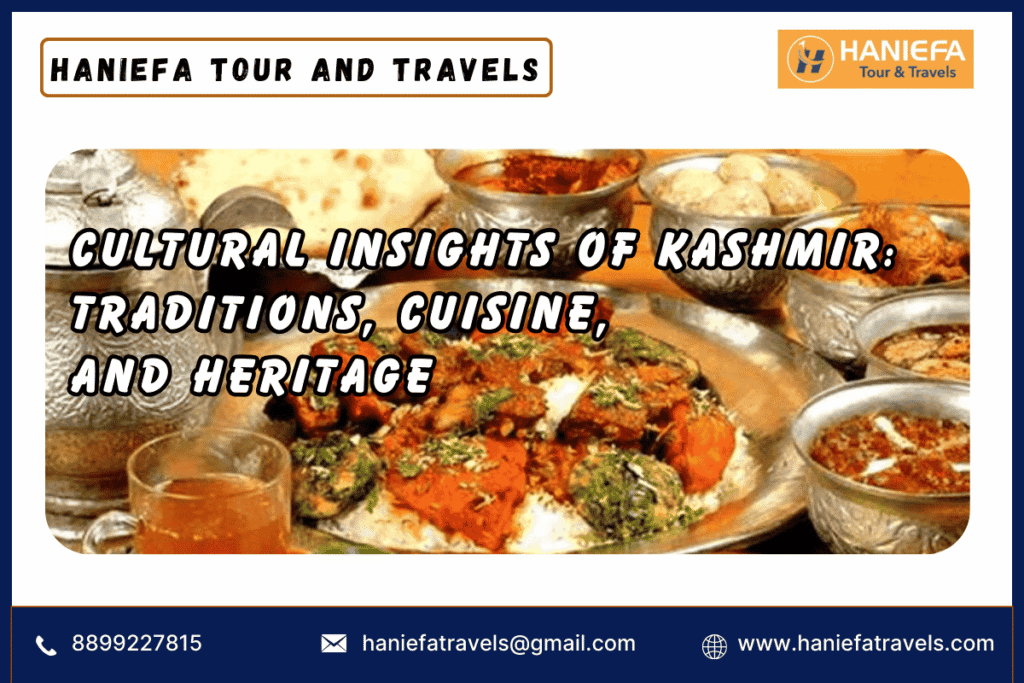Cultural Insights of Kashmir. Kashmir, often referred to as “Paradise on Earth,” is not only known for its breathtaking landscapes but also for its rich and diverse culture. This northern region of India boasts a unique blend of influences from Central Asia, Persia, and the Indian subcontinent. From its traditional handicrafts to its cuisine, Kashmir’s culture offers deep insights into the region’s history and way of life.
The Kashmiri People: Warm and Welcoming
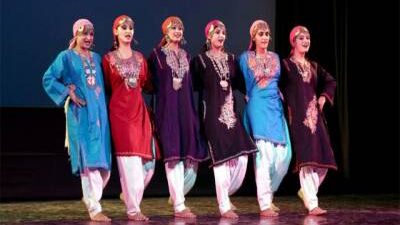

The people of Kashmir are known for their hospitality and warmth. Despite facing political and social challenges, they continue to preserve their traditional values and customs. Kashmiri society is known for its strong community ties, with family and hospitality playing central roles in daily life. Visitors often remark on the kindness and generosity of the locals, who take pride in showcasing their culture and traditions.
Kashmiri Cuisine: A Feast for the Senses
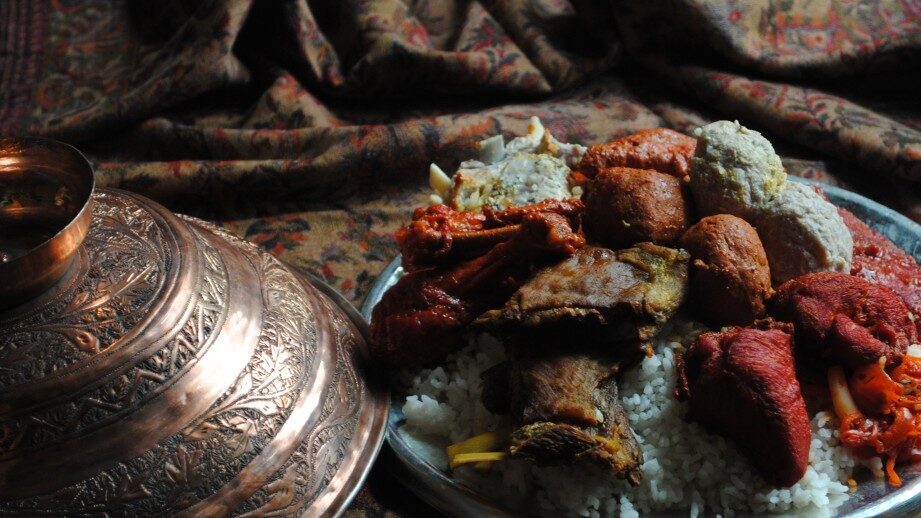

Kashmiri cuisine is an integral part of its culture. Known for its rich flavors and unique spices, the food here is a delightful blend of Persian and Indian influences. The most famous dish is Rogan Josh, a slow-cooked lamb curry, often served with rice. Other notable dishes include Yakhni, a yogurt-based mutton stew, and Gushtaba, meatballs cooked in a flavorful gravy.
The region is also famous for its Kashmiri saffron and dry fruits, which add distinct flavors to the cuisine. Kahwa, a traditional Kashmiri green tea infused with saffron, almonds, and cinnamon, is a popular drink, especially during cold winters.
Handicrafts: The Art of Kashmir
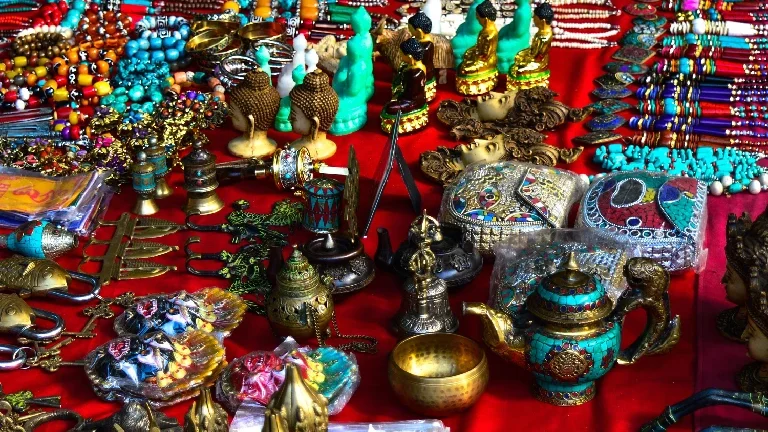

Kashmir is renowned for its exquisite handicrafts, which have been passed down through generations. Pashmina shawls, Kashmiri carpets, and Kangri (a traditional firepot) are just a few examples of the region’s craftsmanship. The art of paper mâché is another famous craft, with intricate designs used to decorate boxes, trays, and decorative items.
Kashmiri carpets are particularly famous for their beauty and intricacy. Made from high-quality wool and silk, these carpets feature stunning floral patterns and vibrant colors, making them a prized possession for collectors around the world.
Festivals of Kashmir: Celebrating Culture and Tradition
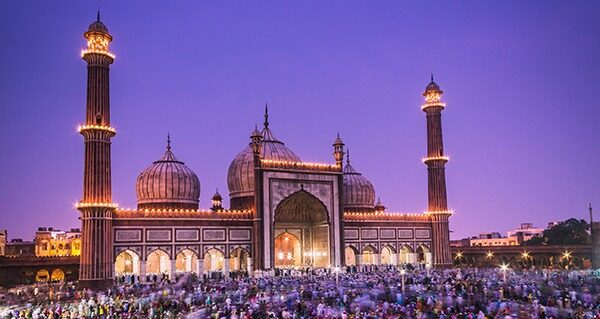
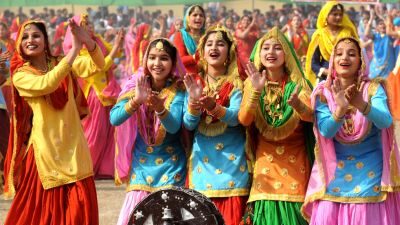
Kashmir celebrates a number of festivals that reflect the region’s unique cultural heritage. Eid al-Fitr and Eid al-Adha are celebrated with great enthusiasm, as are the festivals of Shab-e-Barat and Shab-e-Qadr, which have special significance for Kashmiri Muslims.
Navroz, the Persian New Year, is another important celebration, marked by feasts, music, and the wearing of new clothes. The festival is a symbol of renewal and is celebrated with much joy in Kashmiri households.
Music and Dance: The Soul of Kashmir

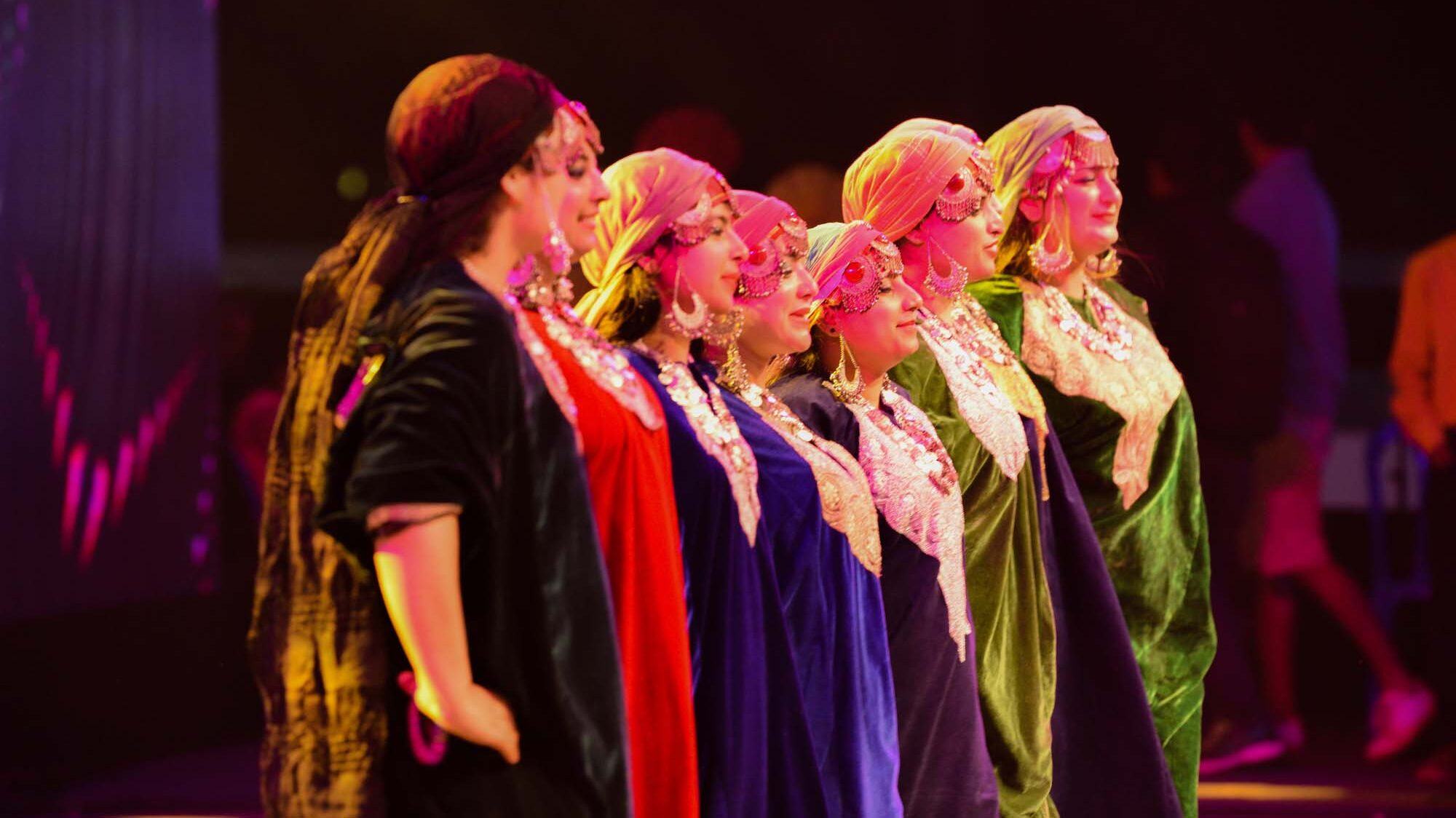
Kashmir’s music and dance forms are a vital part of its culture. Sufiyana Kalam, a form of classical music, is one of the most cherished traditions in Kashmir. It is a blend of spiritual and musical expressions, often accompanied by instruments like the santoor and rabab.
Traditional Kashmiri dance forms like Rauf and Bhand Pather are performed during festivals and celebrations. Rauf is a folk dance that involves graceful hand movements and rhythmic footwork, while Bhand Pather is a theatrical dance-drama performance that narrates humorous and moral stories.
The Influence of Religion on Kashmiri Culture
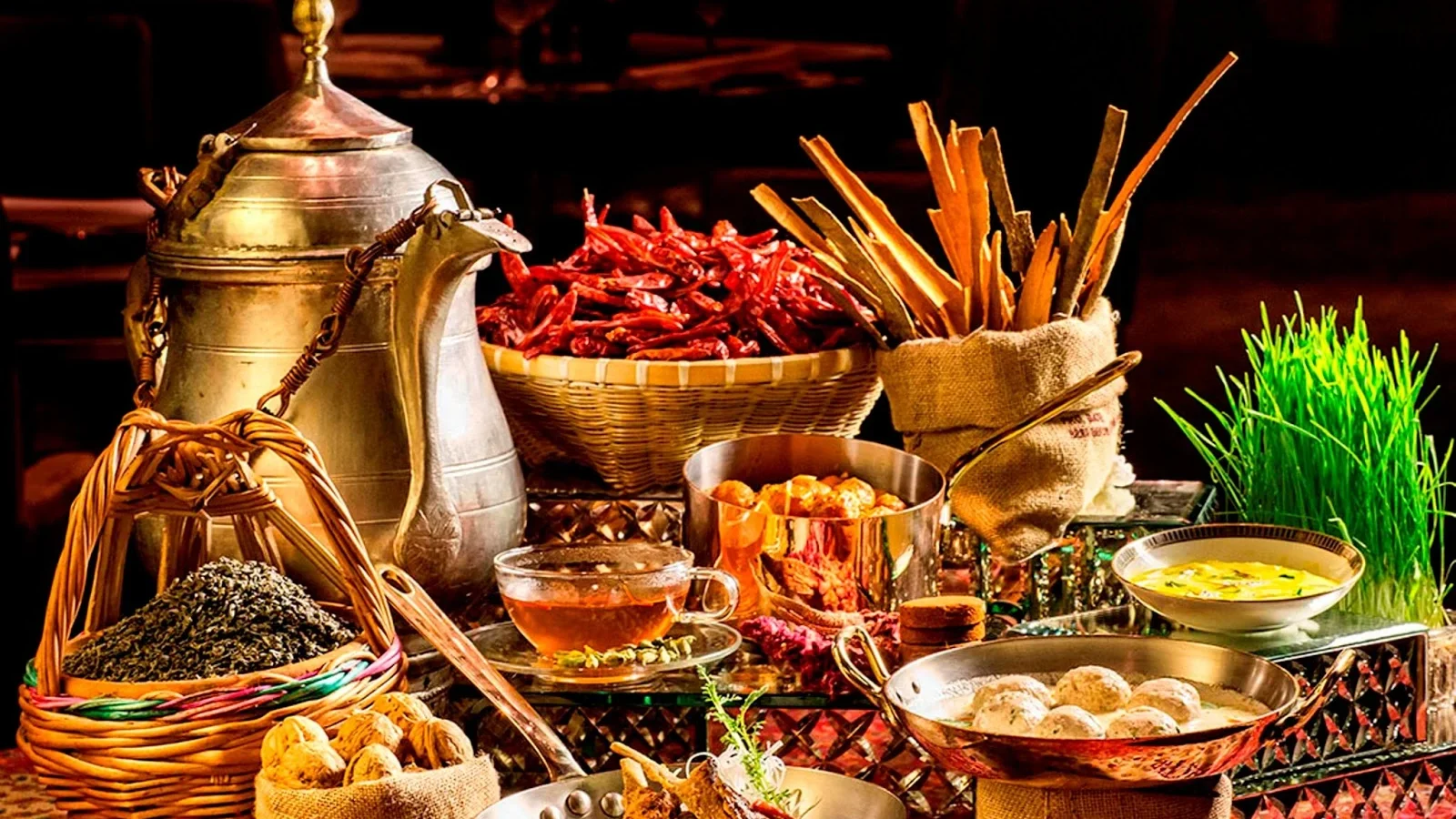
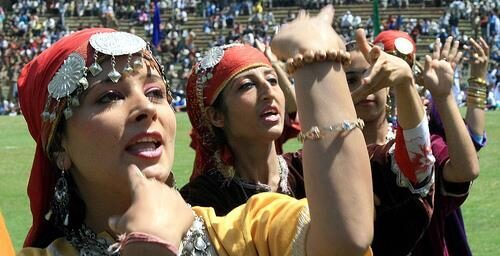
Religion plays an important role in shaping Kashmir’s cultural identity. The region is predominantly Muslim, but there is also a significant Hindu presence, particularly in towns like Panjtarni and Mattan. This religious diversity has led to a harmonious blending of cultural practices.
Shankaracharya Temple and Hazratbal Shrine are key religious sites that draw both pilgrims and tourists. These sites represent the spiritual harmony that exists in Kashmir, where Hindu and Muslim communities have coexisted for centuries.
The Role of Kashmir in Sufism
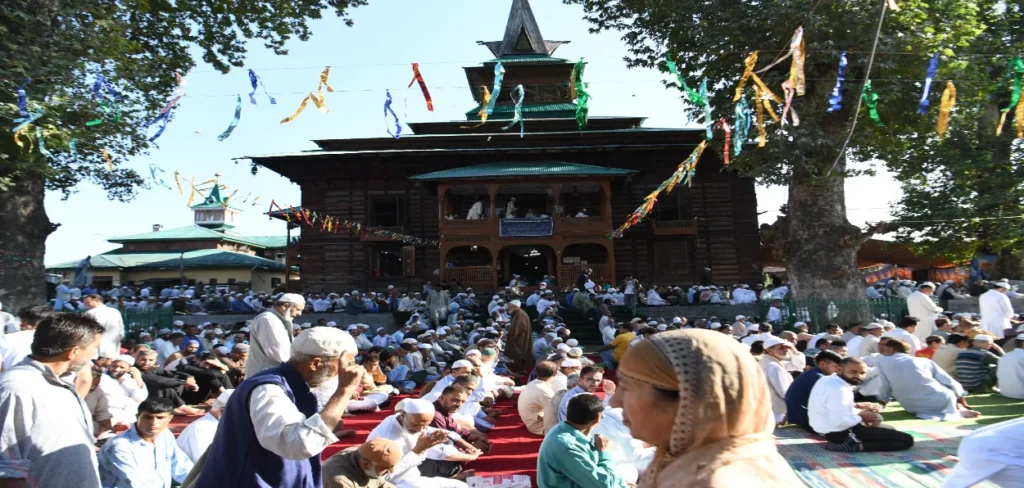
Kashmir has a deep connection with Sufism, which has influenced both its culture and spirituality. The teachings of Sufi saints like Sheikh Noor-ud-Din Noorani (Nund Rishi) have left a lasting impact on the region. Many Kashmiri Muslims follow Sufi traditions, and their spiritual gatherings, known as Ziarats, are an important part of religious life in the region.
Conclusion: A Unique Cultural Experience
Cultural Insights of Kashmir is as mesmerizing as its landscapes. From its traditional music and dance to its flavorful cuisine and intricate handicrafts, the region offers a unique cultural experience. Despite the challenges it has faced over the years, Kashmir has preserved its rich heritage, which continues to inspire visitors from around the world.
If you’re planning to explore the Cultural Insights of Kashmir, this guide to Kashmir tourism will provide you with all the information you need.

